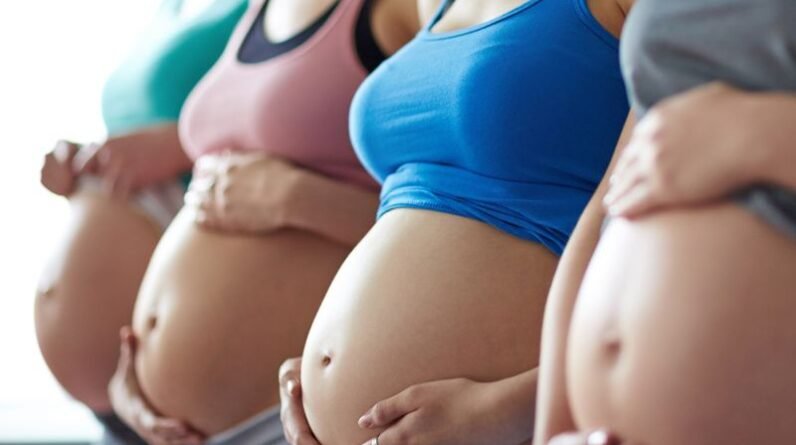
Your postpartum body undergoes dramatic neurobiological transformation as your uterus contracts over six weeks, hormones fluctuate wildly, and sleep deprivation affects cognitive function. We’re experiencing maternal identity formation—a complete recalibration of decision-making patterns, social connections, and emotional responses. Up to 80% of new mothers face mental health challenges as brain reward pathways adapt. Your relationships will shift as priorities fundamentally change. This isn’t personal failure—it’s competent adaptation to profound physiological change that deserves deeper understanding.
The Physical Reality: What Your Body Actually Experiences Postpartum
Recovery begins the moment your baby arrives, yet many new mothers feel unprepared for the physical demands their bodies will face in the weeks that follow. Your uterus contracts to its pre-pregnancy size over six weeks, causing cramping that intensifies during breastfeeding. Lochia—vaginal discharge containing blood, mucus, and tissue—continues for four to six weeks as your body sheds the pregnancy lining.
Physical Changes extend beyond reproductive organs. Joint laxity persists for months due to residual relaxin hormone. Sleep deprivation compounds healing, affecting cognitive function and emotional regulation. Hormonal Shifts create dramatic fluctuations as pregnancy hormones plummet while prolactin and oxytocin rise with breastfeeding. These changes affect mood, energy levels, and physical recovery. Understanding these processes helps you navigate postpartum with realistic expectations and appropriate self-care strategies.
The Emotional Whirlwind: Processing Identity Loss and Transformation
While your body undergoes visible healing, your psyche simultaneously processes profound changes that reshape your fundamental sense of self. We experience what researchers term “maternal identity formation”—a neurobiologically-driven transformation affecting cognitive patterns, emotional responses, and behavioral priorities.
| Identity Aspect | Before Motherhood | After Motherhood |
|---|---|---|
| Decision Framework | Individual autonomy | Child-centered filtering |
| Sleep Architecture | Personal optimization | Infant-dependent fragmentation |
| Social Connections | Diverse peer groups | Parent-focused networks |
This self discovery process activates the brain’s neuroplasticity mechanisms, literally rewiring neural pathways. You’re not losing yourself—you’re expanding. Personal growth occurs through what psychologists call “role accumulation theory,” where we integrate motherhood alongside existing identities rather than replacing them. We’re becoming more complex versions of ourselves.
When Your Mind Feels Like a Stranger’s: Mental Health After Baby
Beyond the identity shifts we’ve explored, postpartum mental health challenges affect up to 80% of new mothers through what clinicians recognize as distinct neurochemical and psychological phenomena. Your brain’s reward pathways, stress response systems, and emotional regulation circuits undergo dramatic recalibration during the fourth trimester.
These mind games aren’t character flaws—they’re measurable biological adaptations. Intrusive thoughts, anxiety spirals, and emotional volatility reflect your neural networks adapting to unprecedented hormonal fluctuations and sleep disruption. Research demonstrates that acknowledging these experiences reduces their intensity and duration.
Strategic self care becomes neurologically essential, not optional. Evidence-based interventions include structured sleep recovery, regulated social exposure, and professional screening. Your transformed mental landscape requires the same systematic attention you’d apply to any complex system requiring optimization.
Relationships Redefined: How Connections Change After Motherhood
The neurochemical changes reshaping your mental landscape simultaneously reconfigure how you connect with others, creating a ripple effect that extends far beyond your internal experience. Social changes emerge as your priorities fundamentally shift, affecting everything from casual friendships to intimate partnerships. Family dynamics undergo profound reconstruction as roles, responsibilities, and emotional investments realign around your new identity as a mother.
These transformations manifest in predictable patterns:
- Friendship filtering: You’ll naturally gravitate toward relationships that accommodate your maternal reality while distancing from those that don’t
- Partnership recalibration: Your romantic relationship must absorb new stressors, communication patterns, and intimacy challenges
- Extended family repositioning: Generational boundaries shift as you assume parental authority while potentially seeking increased support
Understanding these relationship modifications as neurobiologically driven adaptations, rather than personal failures, helps you navigate shifts with greater self-compassion and strategic intention.
Finding Your New Normal: Embracing the Person You’re Becoming
As your relationships stabilize within their new configurations, you’ll face the deeper challenge of integrating these external shifts with your evolving internal identity. Research demonstrates that maternal identity develops through iterative cycles of disruption and reorganization. Your motherhood journey isn’t about returning to who you were—it’s about conscious integration of your pre-maternal self with emerging maternal capacities.
Personal growth occurs as you recognize that identity expansion, not replacement, defines this transformation. Studies show mothers who embrace identity flexibility report higher psychological well-being. You’re developing new cognitive frameworks, emotional regulation strategies, and priority hierarchies. This isn’t loss—it’s sophisticated adaptation. We recommend documenting these changes through journaling or reflection practices. Your evolving identity represents competence, not compromise. Trust the process of becoming.
Conclusion
As it turns out you might think you’re supposed to “bounce back” quickly, but research shows maternal adaptation takes 12-18 months minimum. Your brain’s literally restructuring itself—neuroplasticity studies confirm this. We’re not broken when we feel different; we’re evolving. The person you’re becoming integrates your pre-motherhood self with new neural pathways designed for caregiving. This isn’t loss—it’s expansion. Trust the process. You’re not recovering from motherhood; you’re growing into it.







